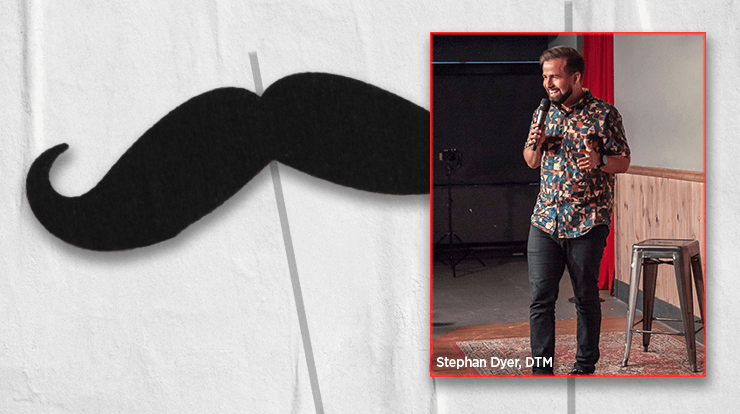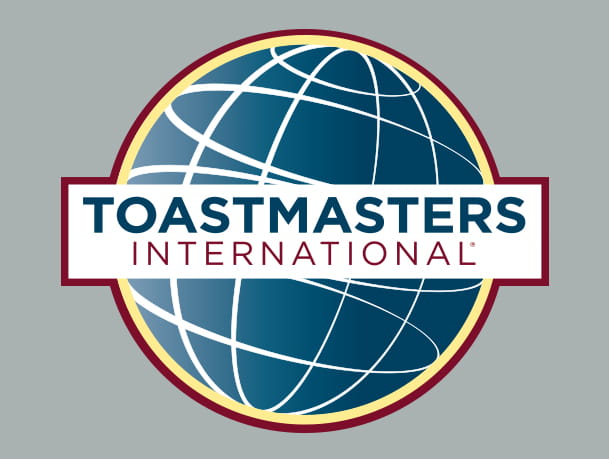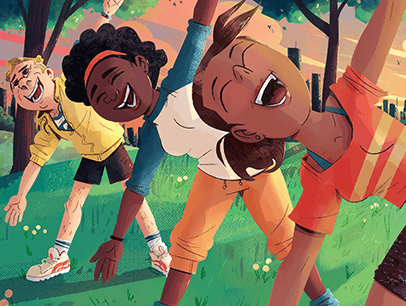
Nearly a decade ago, Markus Seppälä, DTM, a founding member of the Basel International Speakers club in Basel, Switzerland, worked as a specialist in executive compensation which required him to speak at international business conferences. He planned to make professional speaking his next career… but a funny thing happened at his Toastmasters club meetings.
Unintentionally, he made people laugh. And the more they laughed, the more intrigued he became. So Seppälä decided to develop his humor skills. He’s now developing a career in the world of comedy, teaching, performing, and running Comedy Basel, the largest comedy club in the city. His online courses include a comedy class for beginners. He now also uses his comedy club experience to teach communication skills to corporate audiences.
How did you end up in Basel, in Toastmasters, and running your own comedy club?
I joined Toastmasters in 2007 in Brussels, Belgium, and since then have joined a Toastmasters club everywhere I’ve lived, including Stockholm, Sweden, and Australia. So, when I moved to Basel for work, joining a club here was first on the agenda. The English-speaking stand-up comedy scene has enjoyed tremendous growth in non-English-speaking countries in the last five years. With a very international population (36% of the population is non-Swiss), Basel was a perfect market.
The leadership experience that Toastmasters gave me was invaluable when starting my own comedy club.
The leadership experience that Toastmasters gave me was invaluable when starting my own comedy club. From planning a show, marketing it and organizing the tech to being a good host, introducing the performers, and engaging with the audience: these are all skills equally applicable to club meetings and live shows.
What’s involved in running the biggest comedy club in Basel?
It’s not a physical club. Rather, under the Comedy Basel brand, I run shows at three different venues in town. The biggest venue has 80 seats, the smallest 25. What makes it unique is that I try new show formats regularly. For example, in one show the audience is encouraged to heckle the performers, and another one is a one-night competition.
Running the club is a lot more than telling jokes. In the end, you want to make the audience happy, the performers happy, the venues happy, and the sponsors happy. It involves everything from scheduling shows, marketing them, getting people to perform, selling tickets, setting up the room, recording everything, and hosting the show. As a solo producer, I’m particularly proud of my recording setup, which usually involves two separate video recordings and four separate audio recordings of every show. Most of my own performances involve hosting the show: warming up the audience, introducing the performers, and keeping the show on track.
With the official language in Basel being Swiss German, do your performers speak German or English? Do you encounter any cultural and language challenges?
Basel is very international, and all my shows are in English. As a result, we also don’t have a lot of cultural challenges. Rather, diversity is an asset for the show. Our regular performers come from five different continents, and they all bring their individual flavor to the experience. Our audience, too, is very international.
At other people’s shows, in addition to English, I also perform in German, Swedish, and Finnish.
How do you measure success of a comedy show?
The goal in performing comedy is to engage and entertain. Avoiding offending the audience is not and cannot be the goal of a show. An audience cannot be offended and laugh heartily at the same time. So if you want to be offensive you can, but then you’d better be really funny! If they’re just laughing nervously, you need to improve the joke for next time. On that basis, no topics are off limits. Stand-up comedy is free speech.
If you can make fun of yourself, you get more of a license to make fun of other things, too.
A successful comedy show, or business presentation, is about engaging the audience (though many business presenters forget this). I also believe strongly that humor is welcome everywhere, including business settings. Great business leaders are almost always funny, in my experience.
What is your best advice to someone wanting to add humor to a presentation?
If you want to use humor in business presentations, don’t write a joke per se. Rather, tell a personal amusing anecdote. This can get people laughing, which is a great form of engagement. But it will also make you more approachable and human.
A great place to start is to talk about your own failures, mistakes, and shortcomings. For example, in my first TEDx Talk I told the story of how I got booed off stage at a comedy club by 400 people. I had managed to get myself on stage at a competition show at the Comedy Store, one of the most legendary comedy clubs in the world. Performers were voted off by booing from the audience. I lasted 18 seconds onstage. And it was certainly not the worst performance of the evening.
If you can make fun of yourself, you get more of a license to make fun of other things, too.
Beth Black is a freelance writer and editor who lives in Orange County, California. Learn more about her at PracticalPoet.com.
Related Articles

Humor
The Formula for Funny

Humor
The Magic Power of Humor

Humor Speech Tips



 Previous
Previous
 More About Markus
More About Markus
 Previous Article
Previous Article
